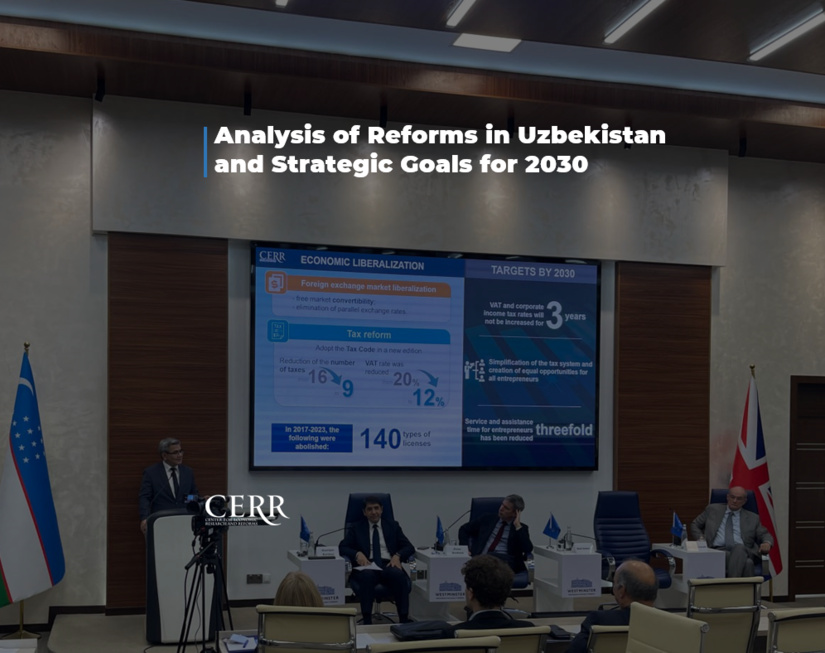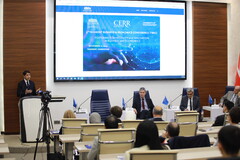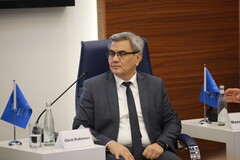On November 21, 2024, the Third Tashkent Business and Economics Conference was held at the International Westminster University in Tashkent. The event was co-organized by the Center for Economic Research and Reforms.
The international conference brought together over 30 participants from 13 countries, including experts from Italy, the United Kingdom, Japan, the UAE, India, Pakistan, Cyprus, Malaysia, Indonesia, Belarus, and Kazakhstan. Among the speakers were Peter Bonfield, Vice-Chancellor of the University of Westminster, London; Marco Vivarelli, Professor of Economics at the Catholic University of the Sacred Heart, Milan, Italy; Karen Jackson, Professor at the University of Westminster, London, and others.
The event was organized to discuss technological innovations and their impact on sustainable economic growth, strengthening global connectivity, and reducing inequality between developed and developing countries.
In his opening remarks, Dr. Obid Khakimov, the CERR Director, highlighted the key transformations in Uzbekistan under the leadership of President Shavkat Mirziyoyev, which have significantly impacted the country’s economic landscape and opened new horizons for growth and development.
In this context, the expert highlighted the speech of the President of the Republic of Uzbekistan, Shavkat Mirziyoyev, at the session of the Legislative Chamber of the Oliy Majlis, emphasizing the country’s commitment to progress and readiness to tackle new challenges.
As part of the conference, the CERR Director presented an analysis of the achievements of Uzbekistan's economic reforms over the past 5 years and the country's development prospects up to 2030.
Focusing on macroeconomic indicators, the expert noted the increase in the economy's size from $53 billion in 2017 to an expected $110 billion in 2024.
The importance of continuing structural reforms in the economy was emphasized, particularly in developing high-productivity industries and attracting over $100 billion in foreign investments in the coming years to enhance the economy's competitiveness.
According to estimates, GDP per capita has increased from $1,600 to $3,000, demonstrating a significant improvement in the population's living standards.
Special attention was given to the open investment policy, which has led to an increase in the number of enterprises with foreign investments from 5,000 to 14,000. This, in turn, has resulted in the creation of 1.5 million high-paying jobs and a doubling of investments in fixed assets to $30 billion.
The CERR Director emphasized the importance of economic liberalization, reducing the tax burden, and increasing business activity, which has positioned the private sector as the main driver of economic growth.
A key topic of discussion was the green economy. Uzbekistan has already achieved its target of reducing greenhouse gas emissions by 35%. Furthermore, by the end of this year, the total installed capacity of renewable energy sources (RES) will reach 7.6 GW, enabling the country to achieve an 18% share of RES in total generation and aim to increase this share to 40% by 2030. The expert emphasized that achieving these goals will require the adoption of new technologies and resource management methods.
In conclusion, Dr. Obid Khakimov highlighted that Uzbekistan is now on the threshold of new goals and faces ambitious tasks that require collective efforts. He called for continued dialogue among scholars, practitioners, and government institutions to successfully address these challenges.
CERR Public Relations Service























leave a comment